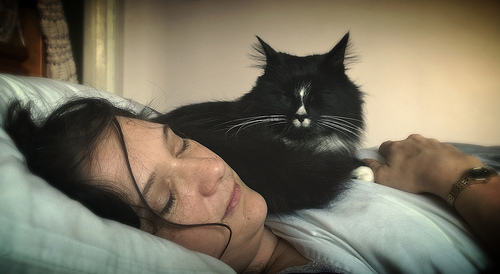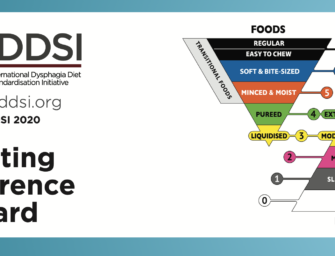Sleep: Are You Getting Enough?
As spring marches on and the days get longer, it’s easy to stay awake later than we intend. To make matters worse, we live in a world where the accomplished are presumed to survive on no more than 5 hours of sleep a night—a belief that can have detrimental effects on our well-being. For this month’s B-Fit entry, learn about how sleep deprivation can harm your health, how much sleep is really “enough”, and practical tips to help you sleep better—and longer.
The Dangers of Too Little Sleep
One of the most obvious hazards of too little sleep is a reduced ability to focus or pay attention. This is particularly dangerous if you drive to work, as sleepiness accounts for 20% of non-fatal motor vehicle accidents. At work, sleep deprivation can hamper your creativity and decrease your ability to remember new information.
Have you ever noticed that your appetite increases when plagued by sleep deprivation? That’s because lack of sleep influences the hormones associated with appetite and reduces your basal metabolic rate— how well your body burns calories when resting. One study showed that when subjects slept for two-thirds their normal time, they consumed an average of 550 calories more per day. To put this into perspective, an extra 500 calories per day translates to one pound of weight gain per week.
In addition to weight gain, prolonged sleep deprivation has several other negative effects on health. Lack of sleep puts you at a higher risk for developing diabetes since it reduces insulin release after meals, which in turn results in high blood sugar levels. It can also increase your risk of high blood pressure by altering your body’s ability to regulate stress hormones.
Overall, lack of sleep is dangerous—for both your health, and your ability to do your job well. But what does “too little sleep” actually mean?
How Much Sleep is Enough?
There is no magic number with respect to how much sleep you need. Most adults need 7 to 8 hours a night, although some need as few as 5 hours or as many as 10 hours. It’s a good idea to determine your own individual needs by assessing how you feel on different amounts of sleep. Are you alert, content, and productive on 6 hours of sleep? Or do you need 9 hours of sleep to be at your best? Many people think that they grow accustomed to a sleep-deprived schedule, but our bodies know better. As a result, our judgment, reaction time, and other functions are impaired—often without us realizing.
Strategies to Sleep Better and Longer
We all know that we need to get more sleep. Easier said than done, right? Getting adequate sleep can be difficult but there are a number of simple strategies that you can use to sleep better and for longer.
Make sleep a priority
In our busy world, it’s easy to disregard sleep when there is so much to do. Sleep needs to be made a priority. Establish consistent sleep and wake times and schedule it in like any other daily activity. Having trouble sticking to your plan? Set an alarm to remind yourself when it’s time for bed.
Document your sleep patterns
Keep track of how much sleep you are getting by keeping a “sleep diary” (see attached). In addition to ‘lights out’ and ‘wake up’ times, it’s a good idea to note the timing of your alcohol and caffeine consumption, exercise, and major meals. If you have trouble sleeping, you may see patterns that will allow you to predict a good night versus a poor night of sleep.
Exercise for at least 150 minutes a week
Studies have shown that 150 minutes of moderate to vigorous activity a week improves sleep quality by 65%. Just don’t exercise too close to bedtime—strenuous activity has an ‘alerting’ effect and raises your body temperature. Experts recommend completing your work out at least three hours before bed.
Limit alcohol, caffeine, and nicotine intake in the evening
A common misconception is that alcohol is a sleep aid. While it may have a calming effect that allows you to fall asleep quicker, it actually increases the number of times you wake during the night. This can negatively impact sleep quality. Caffeine, a well-known stimulant, remains in the body for an average of 3 to 5 hours after consumption. It can disrupt and change the quality of your sleep, even if you don’t think it affects you. Nicotine is also a stimulant and can cause difficulty falling asleep and problems waking in the morning.
Reduce exposure to light before bed
Exposure to bright light tells the brain that it’s time to awaken, not to sleep. The hour before bed is an important time to relax and wind-down. Limit television viewing and computer use as their bright screens can hinder quality of sleep.
In short, the one-third of our life (if we’re lucky!) spent sleeping is anything but unproductive. Sleep plays a direct role in how satisfying and successful the other two-thirds of our life can be.
B-Rested and B-Fit!
Photo Credit: TempusVolat via Compfight cc











